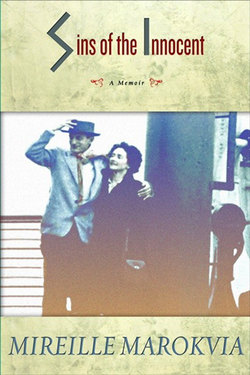Читать книгу Sins of the Innocent - Mireille Marokvia - Страница 11
На сайте Литреса книга снята с продажи.
VI
ОглавлениеWe returned to a Paris where gloom had tarnished the gold of autumn leaves. Our cafés were nearly deserted; most foreign artists were absent, and many French artists, donning ties and coats, had wandered to bourgeois cafés. Policemen were unfriendly, people moody. Everybody blamed the Spaniards still at war, the new suave prime minister and the one who had just fallen, the dictators strutting at our borders, and, of course, “les Anglais.”
I went back to teaching and began cross-country running in the woods—a new addiction. Abel went back to painting and making advertising posters. We moved to a new artist’s studio we loved, which was within walking distance of the Dôme, our favorite café. We gave a party. Did our best to forget the world.
For Christmas, we would go skiing in Germany. It happened that one of Abel’s brothers-in-law had come upon a beautiful, unspoiled, easily accessible place. He would secure room and board for us.
On our way, we stayed overnight in stately Stuttgart, beautiful under the snow. Christmas trees, songs—well sung—delicious pastries, good German wines—a surprise—stylish traffic policemen surrounded by heaps of festive offerings from grateful citizens. I wanted Abel to share my enthusiasm. He shrugged.
Paris atelier, ca. 1937
A train filled with skiers took us up mountains that looked more accessible than the Alps. I liked that too.
We got off at a tiny railroad station. There was a one-hour walk along a pleasant, winding mountain road. Gentle slopes, evergreen trees, a few neat, solid houses. Everything clean, orderly, reassuring, as if the whole landscape had been rearranged to accommodate the people.
At a turn in the road, Abel suddenly threw his rucksack down into the snow and gestured angrily toward the valley that opened in front of us. At the bottom, a lone, elongated wooden structure crouched under a fluttering giant blood-red flag bearing the black swastika.
“I am not going to sleep under that rag,” Abel said, picking up his rucksack and starting to walk back. I followed grudgingly.
At the unattended railroad station, a poster indicated that there would be only one late train.
Winter 1937
I promised I would get very sick if the place turned out to be unpleasant, and we slowly retraced our steps.
“The place” was a military training camp equipped to take in guests who did not mind rustic accommodations.
We were out skiing the whole day long. In the evening, we sometimes saw clean-shaven, heel-clicking young soldiers. The officer in charge, young, clean-shaven, heel-clicking, graciously offered us his room, a low-ceilinged affair furnished with two narrow, hard bunks. We ate the evening meal—black bread, sausage, and beer—with him and two other skiers, teachers eager to practice their French. They taught me some German.
On the last evening, as we had a glass of wine, the young officer, keen on physiognomy, analyzed Abel’s features. His forehead, he said, was “sehr gut,” “sehr Deutsch.” I understood that. His eyes were “sehr gut,” “sehr Deutsch.” But the two lines on each side of his mouth indicated “Polnische grausamkeit,” he said.
Abel translated: “Polish cruelty.”
I giggled . . . .
The officer turned red.
“Why Polish?” we asked.
“The name.”
“It’s Slovak, not Polish,” Abel said.
The German officer was triumphant: “Ja. Ja. Slavische grausamkeit!”
We laughed about that exchange. Ah, we laughed about so many things.
